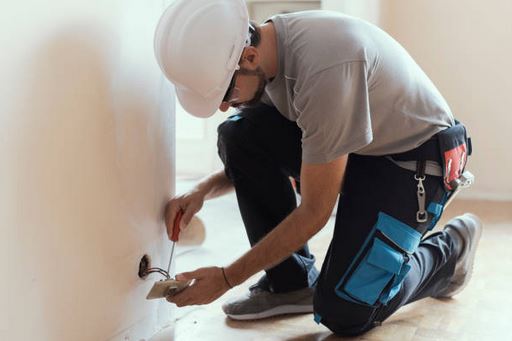If you have any questions about the responsibilities of a commercial electrical contractor, you’re in the right place!
What’s a Commercial Electrical Contractor?
Like you might hire a car mechanic to fix your car, an electrical contractor is an expert in electrics who is hired to perform specific tasks and projects. Normally, this project will be specialized work relating to the design, maintenance, or installation of an electrical system. Of course, a commercial electrical contractor is more interested in work buildings, factories, warehouses, and other big projects as opposed to residential projects.
The work of an electrical contractor is essential because one mistake or faulty wire can threaten the safety of everybody inside the building. In recent times, electrical contractors have had an added dimension to their job with the addition of environmental concerns. Now, they need to perform critical electrical work but with safety, budget, and the environment in mind.

Responsibilities of a Commercial Electrical Contractor
Over the years, different specialties have developed in the electrical field, and this is why the responsibilities of a contractor can vary. For example, let’s say that a business has decided to build a new office block on an existing patch of land. Normally, a contractor will play a role from the very beginning. During the planning stage, they will help builders and designers decide what is and isn’t achievable for the client. With all experts coming together, the client has a design that works and will come to life as the project begins.
Remember, one of the most difficult things for an electrical contractor is keeping in line with the rest of the project. With every project, there will be a budget and certain demands to keep in mind. What’s more, contractors are now expected to consider the environment and come up with energy-efficient solutions. Especially in the business world, being ‘green’ is a selling point, so meeting demands is a challenge.
For most contractors, they work from job to job with a contract for each (as the name suggests). For example, they might spend two weeks on one project and then get contracted to another once the first is done. On the other hand, electricians tend to work for a company (or even a contractor).
After the planning phase, a commercial electrical contractor will set goals and benchmarks to measure success. Also, they will manage the budget, distribute all resources, and keep in communication with other key figures on the site and maybe even the client.
Types of Commercial Electrical Contractor
We mentioned that electrical contractors have their specialties, and we’ve listed a couple of examples below.
Line Contractors
Firstly, these experts tend to work outside on the lines that come from power plants. Since they’re working with high-voltage lines and systems, they need lots of training and experience. Ultimately, their job is to ensure that a building is receiving the right levels of power. Too low, the business can’t run. Too high, there’s a risk of fire and other hazards.
Inside Contractors
Secondly, an inside contractor might work on cabling, rewiring, and other jobs inside the building. We’ve spoken lots about design and installation, but the maintenance of an electrical system is just as important.
Communications Contractors
Thirdly, this type of expert will focus on integrated building systems such as wireless networks, telecommunications, security systems, backup generators, fiber optics, and things of this nature.
There we have it, the responsibilities of a commercial electrical contractor. The term itself can refer to a service or an individual – an electrical contractor service will have electricians of different specialties to tackle projects!
